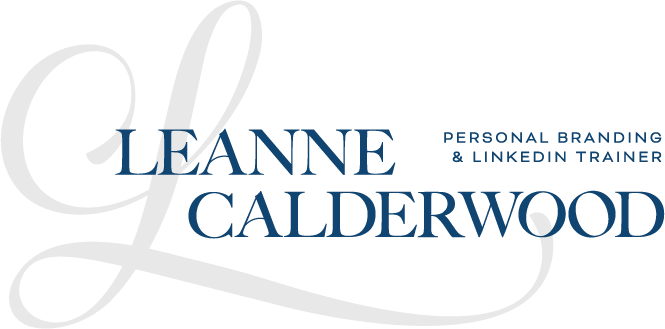If you still think LinkedIn is just a place to post your résumé and quietly…

What is Personal Branding, and Why You Need it as an Introvert
Imagine this….. a world where your talents and expertise are recognized, not because you shout the loudest, but because your authentic self resonates with those who truly value what you bring to the table. Welcome to the empowering world of personal branding.
In an era where digital footprints shape perceptions, personal branding is not just a buzzword but a crucial strategy for professional advancement. But what exactly is personal branding, and why should introverts, in particular, care about it? This blog dives deep into these questions, unraveling the essence of personal branding and its undeniable benefits for introverts.
What is Personal Branding?
Personal branding is the intentional effort to create and influence public perception by positioning yourself as an authority in your industry, elevating your credibility, and differentiating yourself from the competition.
At its core, personal branding activities are about curating the narrative of your professional life, crafting a story that showcases your unique skills, values, and experiences.
Benefits of Personal Branding for Introverts
For introverts, the idea of self-promotion might feel daunting, but personal branding offers a unique set of advantages that align beautifully with their intrinsic qualities. By embracing personal branding activities that leverage introverts’ natural strengths, one can create a more authentic branding experience. Here are some detailed benefits:
Benefit 1: Amplifies Quiet Strengths
Personal branding lets you control how you present yourself to the world. You can choose platforms that feel less overwhelming and engage in ways that suit your energy levels and comfort. This controlled visibility ensures that you are recognized and remembered for your skills without the need to be the most vocal person in the room.
Visibility Without the Noise: Personal branding allows introverts to showcase their skills and achievements without the need for constant verbal self-promotion. By utilizing platforms like LinkedIn, personal blogs, or podcasts, introverts can communicate their expertise in a thoughtful, reflective manner that feels natural to them.
Leverages Written Communication: Introverts often excel in written communication, finding it easier to express themselves and their ideas clearly through writing. Personal branding strategies that focus on content creation, such as articles, case studies, and social media posts, play to these strengths.
Benefit 2: Controlled Networking
Introverts often prefer meaningful one-on-one interactions to large social gatherings. A personal brand helps you attract like-minded individuals and potential collaborators who resonate with your values and style, facilitating deeper and more meaningful professional relationships.
Selective Connections: Personal branding enables introverts to attract networking opportunities that are more aligned with their professional goals and personal values. This selective approach ensures that interactions are more meaningful and less overwhelming.
Digital First Impressions: Online platforms provide a buffer that allows introverts to manage first impressions and engage on their own terms. This controlled environment makes networking less intimidating and more manageable.
Benefit 3: Establishes Authority
Introverts are often reflective, thoughtful, and great listeners—qualities that are highly valuable yet often overlooked in traditional networking settings. Personal branding allows you to highlight these strengths and turn them into professional assets, showing potential clients or employers exactly what makes you different.
Expert Status: By consistently sharing knowledgeable content and insights within their niche, introverts can build a reputation as experts in their field. This recognition can lead to increased respect and credibility without the need for aggressive self-promotion.
Thought Leadership: Personal branding provides a platform for introverts to share their unique perspectives and innovative ideas, establishing them as thought leaders. This can be particularly empowering as it turns the focus from who they are socially to what they know professionally.
Benefit 4: Creates Career Opportunities
With personal branding, you can carefully craft your story without the pressure of spontaneous social interactions. This ability to manage your narrative can be particularly empowering for introverts, allowing you to communicate your background, achievements, and expertise at your own pace and in your own style.
Job Offers and Collaborations: A well-crafted personal brand makes introverts more visible to recruiters, potential employers, and collaborators who value their specific skills and expertise. This can lead to career opportunities that might not have been accessible through traditional networking.
Speaking Engagements: As their brand grows, introverts may be invited to speak at conferences and seminars, providing a platform to speak on familiar topics in structured environments, which can be more comfortable than unstructured social settings.
Benefit 5: Personal Fulfillment
As you build and reinforce your personal brand, you’ll likely experience a boost in confidence. This isn’t just about feeling good—this increased self-assurance can open doors to speaking opportunities, leadership roles, and other avenues that might have seemed daunting before.
Self-Understanding and Growth: The process of defining a personal brand requires introspection and self-reflection, which can lead to greater self-understanding and personal growth. For introverts, this journey can be particularly insightful, helping them articulate their values, passions, and goals.
Confidence in Professional Identity: Building a personal brand helps introverts feel more confident in their professional identity. It reinforces their self-worth by highlighting the impact of their work and the value of their contributions, regardless of their social inclinations.
Each of these benefits helps introverts navigate the professional world in a way that not only respects their natural tendencies but also highlights their strengths. By strategically building a personal brand, introverts can transcend common social barriers and position themselves for success in ways that align with their own terms and comfort levels.
Cons of Having a Personal Brand
While the benefits of building a personal brand are significant, there are also potential drawbacks to consider. Here are some of the challenges associated with maintaining a personal brand:
Con 1: Constant Engagement Required: Building and maintaining a personal brand requires consistent effort. You need to continually engage with your network, update your content, and stay relevant in your field. For introverts, the need for ongoing social interaction and self-promotion can be draining.
Con 2: Vulnerability to Public Perception: A personal brand puts you in the public eye, making you more susceptible to criticism and scrutiny. For introverts, who may take criticism more personally or be more sensitive to negative feedback, this can be particularly challenging.
Con 3: Risk of Misrepresentation: When you put yourself out there, there’s always a risk that your message may be misunderstood or your intentions misconstrued. Managing your brand’s perception requires vigilance and can sometimes lead to stress about how you’re perceived by others.
Con 4: Pressure to Perform: A strong personal brand can lead to high expectations from others. The pressure to live up to your brand’s image and continuously deliver at a high standard can be stressful and, at times, overwhelming, especially for those who value their privacy and downtime.
Con 5: Blurring Personal and Professional Lives: In the digital age, the line between personal and professional lives is increasingly blurred. For introverts, who often value their privacy, the exposure that comes with a personal brand can feel invasive and lead to a sense of lost privacy.
Overcoming Challenges and Limiting Beliefs
Many introverts hesitate to put themselves out there due to preconceived notions about what personal branding entails. Here’s how to overcome these barriers:
Tip 1: Start Small: Begin by sharing your thoughts and expertise on platforms that feel comfortable, like LinkedIn or small networking groups.
Tip 2: Embrace Authenticity: Use your natural inclination for authenticity to your advantage. Authentic brands resonate more deeply with audiences.
Personal branding might seem daunting, especially for those who thrive in quiet. However, it’s not about being the loudest in the room but about being the truest version of yourself. By embracing personal branding, you don’t just amplify your career opportunities; you empower yourself to build connections and opportunities that align with your genuine self.
To your branding success,
Leanne
Are you ready to step out of the shadows and into the spotlight? Begin crafting your unique online presence today and watch as opportunities unfold. Remember, even the quietest voices can echo the loudest in the realms of the digital world. Join us at our upcoming webinar, “Introverts Unleashed – 5 Key Questions Your Online Presence Should Answer “- you can learn more and save your spot here.
RELATED –Beyond Merit: Why Your Personal Brand Matters in Today’s World
RELATED –Balancing Act: Navigating Personal and Professional Boundaries on LinkedIn
RELATED –Your Untapped Voice: The Power of Personal Branding for Everyone
RELATED – The risks of not starting a personal brand in 2024
RELATED –Everyday Expertise: Leveraging Your Life Experiences for a Stronger Personal Brand




